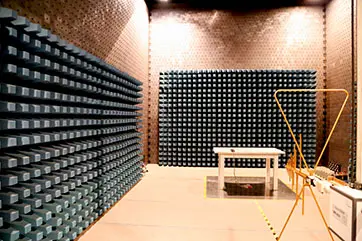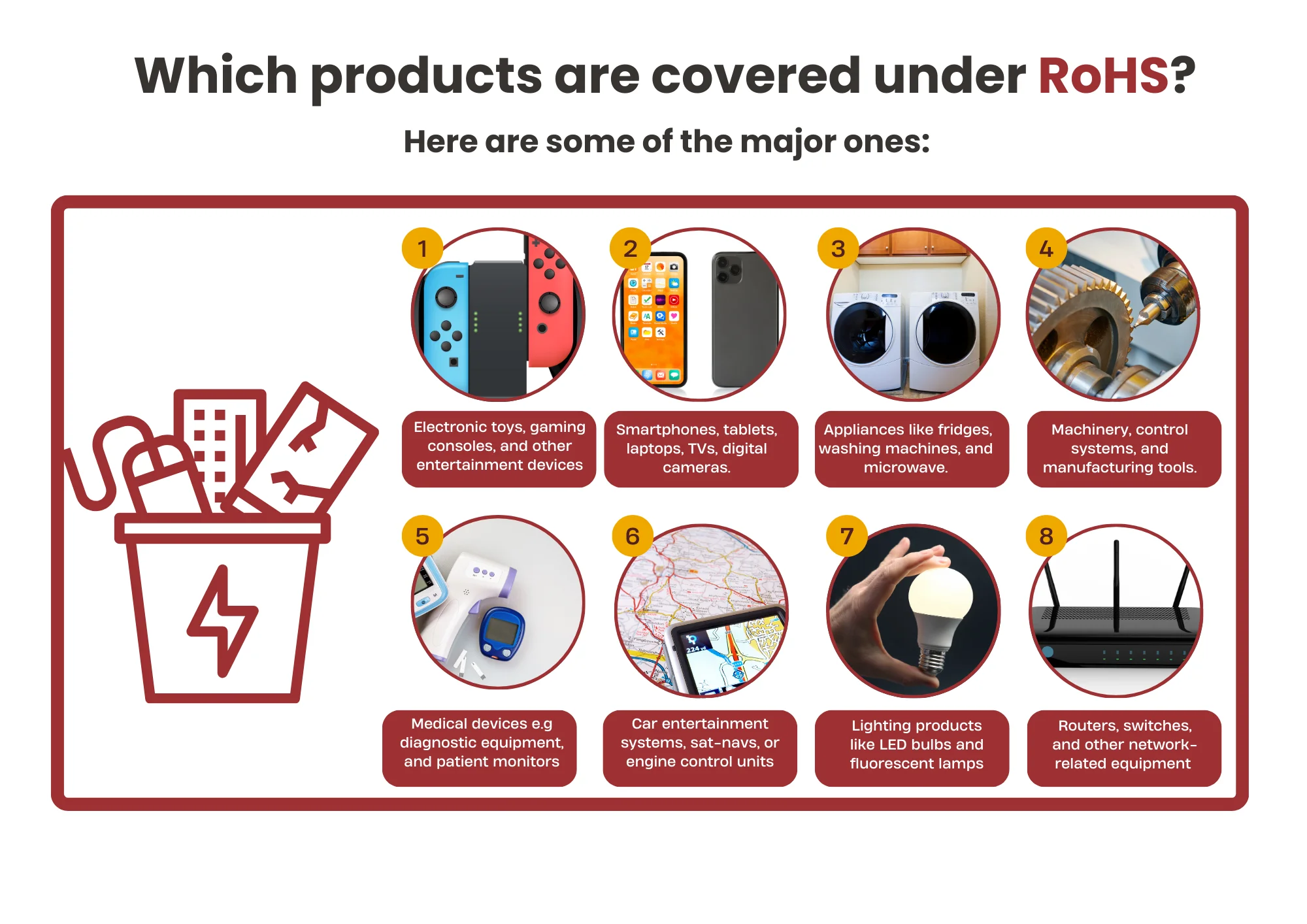
Is EMC Testing Mandatory?
Electromagnetic Compatibility (EMC) testing is a critical part of the product launch process. It is a legal requirement in many of the largest markets globally, including the United States and the European Union, and is essential for the marketing of electronic devices.
EMC testing involves assessing your device to ensure it can operate normally in the presence of other electronic devices and equipment. The testing is performed by EMC testing laboratories and is part of the process for achieving regulatory compliance and market entry for your product.

In most countries, conducting EMC testing is a mandatory requirement. However, the EMC standards may differ slightly between countries/regions, so it is crucial to have a clear plan before testing your device.
Below, we will explain in detail what EMC testing is, which devices need to undergo EMC testing for market access, and the common EMC standards and regulations used in the United States and other countries.
What is EMC Testing?
EMC testing is the process of evaluating the electromagnetic compatibility of electronic devices. It measures two key aspects. The first is the device’s ability to function normally when exposed to electromagnetic interference (EMI) from other devices.
The second is the level of electromagnetic interference emitted by the device, which could affect the operation of other devices.
In short, EMC testing ensures that the device operates within approved limits, meaning it can function alongside other devices without causing malfunctions or failures in nearby equipment. You can think of it as checking whether the device is a "good neighbor" to other devices.
This testing is crucial because electromagnetic interference can lead to device damage, malfunction, data corruption, or system failures. Proper testing helps protect the electromagnetic spectrum, ensuring devices can operate safely and efficiently.
What is EMI?
Electromagnetic Interference (EMI) is defined as electromagnetic energy that disrupts the functionality of electronic equipment, electrical systems, or radio-frequency systems.
Since EMI can be both radiated and conducted, engineers must test the power supply through comprehensive radiation and conduction scenarios. Radiated EMI, also known as Radio Frequency Interference (RFI), spreads in the form of radio waves. Conducted EMI comes from an electromagnetic field generated by another source. Current can unintentionally travel along cables from an external source to the device under test.
Which Devices Need EMC Testing?
Nearly all electronic devices need to undergo EMC testing, especially those designed for consumer, commercial, industrial, or medical use.
These include home appliances, computers, smartphones and tablets, medical devices and equipment, remote control devices, home security systems, industrial machinery, and certain components used in automobiles and other vehicles.
What Types of Products Require emc certification?
Any electronic device can benefit from EMC testing, but certain categories of devices must undergo EMC testing because they may interfere with other electronic devices or are particularly susceptible to interference. Here are some key examples and the relevant standards they should comply with:
Consumer Electronics:
- Televisions: Emit strong radio frequencies that can interfere with other devices like radio receivers. Standard: CISPR 32
- Smartphones and Tablets: Emit interference from wireless communication and internal circuits and are also susceptible to interference. Standard: fcc part 15
- Bluetooth Speakers and Headphones: If poorly designed, continuous data transmission may cause EMI issues. Standard: EN 55032
- Home Appliances: Microwave ovens, washing machines, and refrigerators generate electromagnetic noise that can affect other devices. Standard: EN 55014
In addition, EN 55032 is a specific product standard covering the EMC compliance testing for multimedia equipment (MME), replacing several other product standards, including the ITE's EN 55022.
Industrial Equipment:
- Motors and Drives: High current and switching frequencies generate conducted and radiated EMI, which can interfere with factory control systems and communications. Standard: EN 61800-3, IEC 60034-5
- Robots and Automation Machines: Wireless communication and control signals are prone to interference, affecting operation and safety. Standard: EN 55011, IEC 61000-6-4
Medical Devices:
- Although medical devices can be affected by EMI from other devices, ensuring they operate correctly is crucial for patient safety. Standard: IEC 60601-1-2
Other Products:
- Automotive Electronics: From GPS systems to engine control units, automotive electronics must be resistant to EMI and not interfere with other vehicles or roadside infrastructure.
- Wireless Access Points and Routers: These devices continuously transmit and receive data, so compatibility with other Wi-Fi signals is essential.
- Certain Toys and Hobby Devices: Depending on their function and emissions, specific toys and hobby products may also need EMC testing.
Our complete guide on products requiring EMC testing provides a more detailed explanation of the consumer and industrial devices that must undergo EMC testing for market access.
Is EMC Testing Mandatory?
In almost every market, electronic devices must undergo EMC testing before being sold to the public. In the United States, the Federal Communications Commission (FCC) regulations, such as Part 15, specify the requirements for devices and the potential penalties for non-compliance, including fines and legal actions.
In short, if you manufacture electronic devices, it is crucial to complete testing and the compliance process before entering the market.
Common EMC Standards and Regulations
- FCC Part 15
In the U.S., the Federal Communications Commission (FCC) regulates EMC through Part 15 of its rules. FCC Part 15 applies to most electronic devices sold in the U.S., ranging from small handheld devices to industrial equipment. The focus is on limiting electromagnetic radiation from intentional and unintentional radiators to ensure devices can operate in shared environments.
We offer fcc part 15 testing services to help you complete laboratory testing and meet FCC EMC standards.
- EU Radio Equipment Directive (RED)
The Radio Equipment Directive (RED) is an important regulation in the European Union that applies to all devices and equipment using the radio spectrum. This directive includes standards for EMC, safety, and the effective use of radio frequencies.
Manufacturers wishing to sell electronic devices in the EU must comply with the RED.
We provide RED testing to help you meet the standards and bring your device to the European market.
- EU EMC Directive
The EU EMC Directive specifically restricts the electromagnetic radiation from devices and equipment. Similar to FCC Part 15, this directive ensures that devices do not interfere with the normal operation of other devices, and vice versa. It also involves the device's immunity to EMI.
The CE marking on electronic devices indicates that the product complies with the EMC Directive and other EU standards.
- Other Relevant Standards
- IEC Standards: The International Electrotechnical Commission (IEC) has developed a series of international EMC standards widely adopted by many countries.
- EN Standards: In Europe, specific EMC-related EN (European) standards have been adopted to ensure consistency across EU member states and align with international standards.
- ISO Standards: The International Organization for Standardization (ISO) also has its own EMC-related standards, particularly for automotive and industrial equipment.
EMC Testing for Market Access
- United States: FCC Part 15 Testing and Certification
- Europe: CE Mark EMC Testing (EMC Directive 2014/30/EU)
- Canada: EMC Testing per Canadian Industrial Standards
- Japan: VCCI EMC Testing and Certification
- South Korea: KCC EMC Testing and Certification
- Australia: ACMA Registration
- Brazil: Anatel Testing and Certification
- China: CCC Testing and Certification
If you are developing or importing electronic devices and need to ensure compliance with FCC Part 15, the EU Radio Equipment Directive, the EU EMC Directive, or other regulations, we can assist you with the process.
Email:hello@jjrlab.com
Write your message here and send it to us
 EMC Pre Compliance Testing
EMC Pre Compliance Testing
 PAHs Testing (Food and Textile)
PAHs Testing (Food and Textile)
 Where to Apply for the EU RoHS Test Report?
Where to Apply for the EU RoHS Test Report?
 Children’s Products and Toy Testing
Children’s Products and Toy Testing
 What is a GB 31701 Test Report?
What is a GB 31701 Test Report?
 UN 38.3 Transportation Test
UN 38.3 Transportation Test
 Toxicological Risk Assessment of Medical Devices
Toxicological Risk Assessment of Medical Devices
 How to get the Vacuum Cleaner UL 1017 Test Report?
How to get the Vacuum Cleaner UL 1017 Test Report?
Leave us a message
24-hour online customer service at any time to respond, so that you worry!




